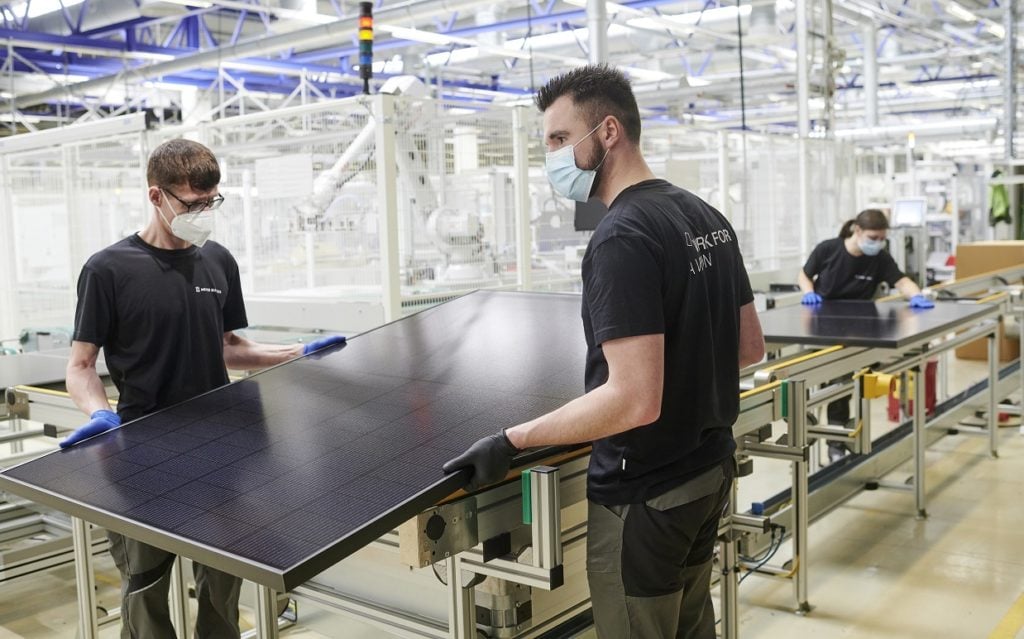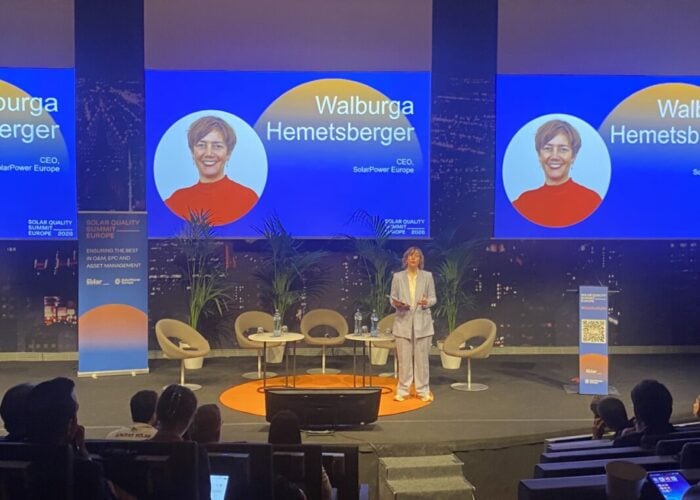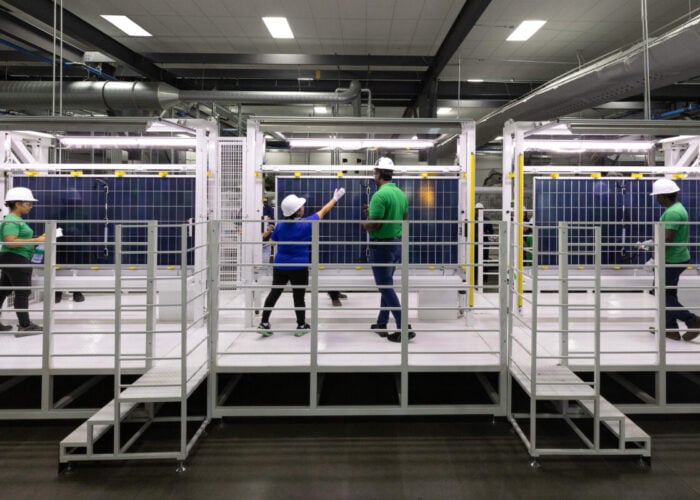
Establishing solar manufacturing scale at speed will be critical to the continent’s hopes of reviving an upstream solar manufacturing value chain, a panel of experts has concluded.
Speaking at SolarPower Europe’s high-level industry forum, hosted at this week’s Intersolar Europe 2021 exhibition, the trade body’s chief executive Walburga Hemetsberger spoke of Europe’s ambition to have 20GW of solar module manufacturing capacity – with accompanying value chain – within Europe by 2025.
Try Premium for just $1
- Full premium access for the first month at only $1
- Converts to an annual rate after 30 days unless cancelled
- Cancel anytime during the trial period
Premium Benefits
- Expert industry analysis and interviews
- Digital access to PV Tech Power journal
- Exclusive event discounts
Or get the full Premium subscription right away
Or continue reading this article for free
This target had placed the sector “on the map”, Hemetsberger said, stating that “eyes and ears are open” with regards what is needed from the upstream solar industry in order to meet that target.
Panelists included representatives of both Meyer Burger and Solarwatt, manufacturers that have committed to building out manufacturing capacity in Europe, however both companies admitted that their respective current capacities are “drops in the ocean” in comparison to what is needed and the kind of scale other manufacturers possess.
Armin Froitzheim, chief technology officer at Solarwatt, said “enormous effort” was being undertaken by manufacturers and component providers from across the chain, ranging from polysilicon and ingot providers to frame, glass and other components, but suggested a comprehensive industrial strategy was required in order to reduce dependence on Chinese suppliers further.
Goran Bye, CEO at Norway-based monocrystalline wafer provider Norwegian Crystals, said Europe’s upstream solar industry needs to appreciate that Chinese manufacturers “knew how to get the price down”, and one of the critical components to this was establishing significant manufacturing scale at speed.
European manufacturers must look to replicate that kind of scale and speed, with Bye adding that this would not be achieved by backing novel technologies that are “still in the research lab”, such as pervoskites. After sufficient scale has been reached, that scale could then serve as a “platform to implement new technologies”.
Mortiz Borgmann, managing director at Meyer Burger (Industries), concurred, stating that Europe’s solar sector must build trust and adopt a more collaborative approach, ensuring that capacities of other components such as glass and aluminium frames also comes forward, with the entire value chain almost serving to de-risk investments in capacity expansions by adding certainty over offtakers.
More in-depth coverage of this panel will be published on PV Tech Premium later this week.






